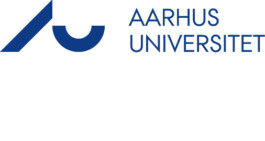Towards a Global Intellectual History of an Unequal World, 1945-Today
Program


Format

This is a fully online symposium. To register, please follow this link and sign up with your name and affiliation: https://events.au.dk/globalinequality2021/registration. You will then receive a zoom-link prior to the symposium.
The symposium is organized into panel sessions with brief presentations followed by comments and discussion. We are circulating papers to other speakers ahead of the symposium. If you wish to read a particular paper before attending a panel session, please ask the speaker directly.
Zoom-trouble-shooting: If you experience troubles with zoom, you can contact our student assistant at mms@cas.au.dk
Please note that it is not allowed to record any parts of the symposium.
Background
Global inequality is one of the major challenges facing the world community. In 2015, the United Nations adopted a new set of world goals, including bringing down inequality (both within and between nations). Studies of ‘global inequality’ have surged in the social sciences and the humanities in the last couple of decades. More broadly, inequality is more than just the simple negation of equality. Dating back to Jean-Jacques Rousseau and up until Thomas Piketty among others, writings on inequality have constituted a separate field of inquiry. In intellectual history, studies on inequality have tended to focus on canonical works or a nation state setting. We do not yet have a global intellectual history of (global) inequality. There is a genuine need for a transnational and transcontinental perspective which not only compares different geographical spaces, but also studies the connectivity in important exchanges of ideas and concepts within the South (as in the history of the Non-Aligned Movement), and between North and South.
Aim

This two-day symposium is designed to investigate the global intellectual history of inequality. It will do so through a double global lens: How have intellectuals from around the world thought about inequality in the world?
The aim of the symposium is to contribute with a new transnational intellectual history of inequality in different geographical and cultural contexts. The symposium will investigate links, differences and similarities between different intellectual traditions, as well as the circulation of inequality concepts and knowledge across countries. It aspires to facilitate a unique transcultural and multi-linguistic knowledge about inequality concepts, contributing to the fields of global conceptual and intellectual history.
Critics of global intellectual history have rightfully pointed out that few connections are actually truly global (planetary), but can much more adequately be described as transnational or transcultural (or ‘transcolonial’ or ‘transimperial’) connections. Taking this criticism into account, we are interested both in learning more about the intellectual histories of inequality in non-western countries, including in non-English, indigenous languages. Secondly, we are interested in learning more about intellectual and conceptual histories of transnational connections between various parts of the world, such as North-South and South-South connections and intellectual biographies of key thinkers on inequality whose histories are linked to several countries and continents. How did intellectuals across the globe address inequalities in a post-world war II age of ‘development’, promises of universal human rights, new data on inequalities, and of the crucial historical dynamics of the Cold War and decolonization?
Inequality is a multidimensional phenomenon, and many different terminologies exist, distinguishing between, for example, national, international and global inequality; inequalities of class, gender and race/ethnicity; horizontal vs. vertical inequalities; vital, resource and existential inequality; recognition vs. redistribution, etc. While we are especially interested in intellectual histories of global economic inequality, we also want to explore other aspect of the multiple global intellectual histories of inequality. Economic inequality very often intersects with other inequalities. Similarly, it is an empirical question what kinds of inequalities intellectuals addressed in the past, and what kind of ‘world’ they understood themselves to belong to. For some, being woman, being black or being part of a lower caste was even more defining for their world than living in particular places, be they nation states, centers or peripheries of empire, or being ‘a citizen of the world’. While we are very interested in histories of intellectuals reflecting on being part of an unequal world (e.g. defined as ‘South’ versus ‘North’ or ‘Periphery’ versus ‘Center’), we acknowledge that the historical experience of what constitutes a persons’ world is highly historically contingent.
Keynote speakers
We are delighted to welcome Adom Getachew (Assistant Professor of Political Science, The University of Chicago, author of Worldmaking After Empire, Princeton U.P. 2019) and Siep Stuurman (Emeritus Professor of the History of Ideas, Utrecht University, and author of The Invention of Humanity, Harvard U.P. 2017) as our two keynote speakers.
Other

Queries can be directed to global-inequality@cas.au.dk. Learn more about the project hosting the symposium on www.global-inequality.com
Our twitter-handle is @globalineq.
This symposium is sponsored by Independent Research Fund Denmark with the Sapere Aude Research Leader Grant ‘An Intellectual History of Global Inequality, 1960-2015’.
⬤ June 10th-11th 2021, Aarhus University, Denmark
Towards a Global Intellectual History of an Unequal World, 1945-Today

Program


Format
This is a fully online symposium. To register, please follow this link and sign up with your name and affiliation: https://events.au.dk/globalinequality2021/registration. You will then receive a zoom-link prior to the symposium.
The symposium is organized into panel sessions with brief presentations followed by comments and discussion. We are circulating papers to other speakers ahead of the symposium. If you wish to read a particular paper before attending a panel session, please ask the speaker directly.
Zoom-trouble-shooting: If you experience troubles with zoom, you can contact our student assistant at mms@cas.au.dk
Please note that it is not allowed to record any parts of the symposium.
Background
Global inequality is one of the major challenges facing the world community. In 2015, the United Nations adopted a new set of world goals, including bringing down inequality (both within and between nations). Studies of ‘global inequality’ have surged in the social sciences and the humanities in the last couple of decades. More broadly, inequality is more than just the simple negation of equality. Dating back to Jean-Jacques Rousseau and up until Thomas Piketty among others, writings on inequality have constituted a separate field of inquiry. In intellectual history, studies on inequality have tended to focus on canonical works or a nation state setting. We do not yet have a global intellectual history of (global) inequality. There is a genuine need for a transnational and transcontinental perspective which not only compares different geographical spaces, but also studies the connectivity in important exchanges of ideas and concepts within the South (as in the history of the Non-Aligned Movement), and between North and South.
Aim
This two-day symposium is designed to investigate the global intellectual history of inequality. It will do so through a double global lens: How have intellectuals from around the world thought about inequality in the world?
The aim of the symposium is to contribute with a new transnational intellectual history of inequality in different geographical and cultural contexts. The symposium will investigate links, differences and similarities between different intellectual traditions, as well as the circulation of inequality concepts and knowledge across countries. It aspires to facilitate a unique transcultural and multi-linguistic knowledge about inequality concepts, contributing to the fields of global conceptual and intellectual history.
Critics of global intellectual history have rightfully pointed out that few connections are actually truly global (planetary), but can much more adequately be described as transnational or transcultural (or ‘transcolonial’ or ‘transimperial’) connections. Taking this criticism into account, we are interested both in learning more about the intellectual histories of inequality in non-western countries, including in non-English, indigenous languages. Secondly, we are interested in learning more about intellectual and conceptual histories of transnational connections between various parts of the world, such as North-South and South-South connections and intellectual biographies of key thinkers on inequality whose histories are linked to several countries and continents. How did intellectuals across the globe address inequalities in a post-world war II age of ‘development’, promises of universal human rights, new data on inequalities, and of the crucial historical dynamics of the Cold War and decolonization?
Inequality is a multidimensional phenomenon, and many different terminologies exist, distinguishing between, for example, national, international and global inequality; inequalities of class, gender and race/ethnicity; horizontal vs. vertical inequalities; vital, resource and existential inequality; recognition vs. redistribution, etc. While we are especially interested in intellectual histories of global economic inequality, we also want to explore other aspect of the multiple global intellectual histories of inequality. Economic inequality very often intersects with other inequalities. Similarly, it is an empirical question what kinds of inequalities intellectuals addressed in the past, and what kind of ‘world’ they understood themselves to belong to. For some, being woman, being black or being part of a lower caste was even more defining for their world than living in particular places, be they nation states, centers or peripheries of empire, or being ‘a citizen of the world’. While we are very interested in histories of intellectuals reflecting on being part of an unequal world (e.g. defined as ‘South’ versus ‘North’ or ‘Periphery’ versus ‘Center’), we acknowledge that the historical experience of what constitutes a persons’ world is highly historically contingent.
Keynote speakers
We are delighted to welcome Adom Getachew (Assistant Professor of Political Science, The University of Chicago, author of Worldmaking After Empire, Princeton U.P. 2019) and Siep Stuurman (Emeritus Professor of the History of Ideas, Utrecht University, and author of The Invention of Humanity, Harvard U.P. 2017) as our two keynote speakers.
Other

Queries can be directed to global-inequality@cas.au.dk. Learn more about the project hosting the symposium on www.global-inequality.com
Our twitter-handle is @globalineq.
This symposium is sponsored by Independent Research Fund Denmark with the Sapere Aude Research Leader Grant ‘An Intellectual History of Global Inequality, 1960-2015’.

